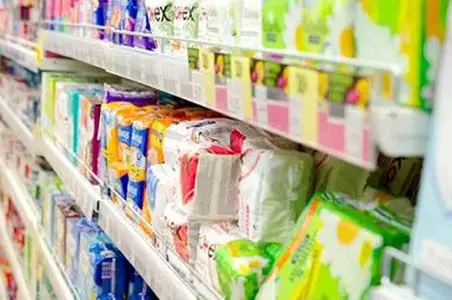A Monthly Struggle Few Talk About
For many women across Jamaica, managing their period is not just a personal responsibility—it’s a financial challenge. Every month, millions are forced to spend thousands of dollars on sanitary pads and tampons, products that are as essential as food and water. Yet, despite their necessity, menstrual products remain subject to import taxes that drive up prices, making them inaccessible for those who need them most.
While Jamaica made headlines in 2012 by removing General Consumption Tax (GCT) from sanitary products, many people are unaware that import duties and other fees still exist. These hidden costs continue to keep prices high, creating an unnecessary financial burden for women—especially those from low-income backgrounds.
As calls for gender equity grow louder worldwide, more voices are demanding that the Jamaican government take a bold step: eliminate all taxes on menstrual products and make them truly affordable for every woman and girl.
The Reality of Pricing: A Luxury for Some, A Necessity for All
A trip to the supermarket reveals the harsh reality of period care in Jamaica. Depending on the brand and quality, the cost of pads and tampons ranges from JMD $300 to $2,000 per pack. With most women needing at least two packs per month, the annual cost can soar to JMD $24,000 or more—a significant expense for families already struggling to make ends meet.
Some women, unable to afford these prices, resort to alternatives that are neither safe nor dignified. Reusing old rags, borrowing supplies, or even skipping work and school are just some of the coping mechanisms employed by those experiencing period poverty.
Dr. Chris-Ann Simpson-Harley, a medical professional and founder of Woman’s Touch, a local feminine care brand, believes that the current tax policies are outdated and unfair.
“These products are not optional—they are a necessity. Women don’t get to decide whether or not they menstruate, so why should they have to pay extra for something they can’t avoid?” she questioned.
Dr. Simpson-Harley, whose company imports 100% cotton-based, chemical-free menstrual products, has seen firsthand how taxes make it harder for businesses like hers to provide affordable solutions.
“We don’t manufacture menstrual products in Jamaica, which means we rely on imports. With the added duty, we’re forced to either raise prices or absorb the costs. Either way, women suffer,” she added.
The Global Shift Toward Tax-Free Menstruation
Around the world, governments are waking up to the reality that taxing menstrual products is a form of gender-based financial discrimination.
- Kenya became one of the first countries to remove all taxes on menstrual products and now provides free pads in schools.
- India abolished its controversial 12% “luxury tax” on sanitary products after years of protests.
- Scotland took the boldest step by making menstrual products free for all citizens, setting a global precedent for period equity.
Jamaica has the opportunity to lead the Caribbean in menstrual affordability, but it requires political will and policy changes.
A Call for Action: More Than Just Tax Relief
While removing import duties would be a major victory, advocates believe the conversation shouldn’t stop there. Activists and policymakers are pushing for more comprehensive solutions, including:
- Government-funded menstrual product distribution in schools and workplaces
- Subsidies for local retailers to lower prices for consumers
- Public awareness campaigns to normalize conversations around period poverty
Shelly-Ann Weeks, founder of the Her Flow Foundation, has been fighting for better period policies for years. Through her organization, she has helped distribute over 10 million menstrual products to vulnerable communities.






